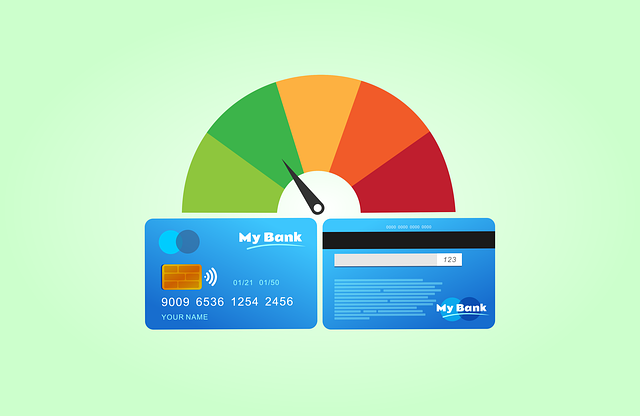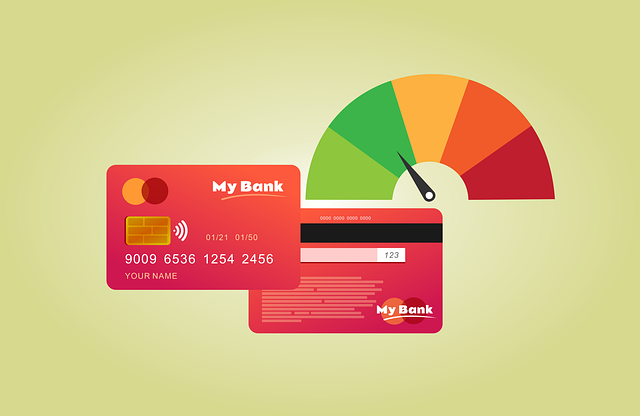Understanding your credit score is crucial for repairing and improving it. Common pitfalls like late payments and overspending can harm your score, but specialists offer guidance on avoiding them. Choosing the right credit repair specialist or agency is key, focusing on transparency, experience, and a wide range of services. Fees vary, with some agencies charging percentages of debt, so careful research is essential. Engaging professionals can accelerate credit repair, negotiate with creditors, and create personalized strategies. After repairing your score, maintain healthy habits by making on-time payments, keeping low credit utilization, and regularly monitoring reports to avoid costly fees and achieve financial freedom.
Are you ready to take control of your financial future? Understanding and repairing your credit score is a powerful step towards achieving financial freedom. This comprehensive guide will walk you through the process, from grasping the fundamentals of your credit score to mastering strategies for effective repair. Learn how to navigate common pitfalls, select the right credit repair specialist or agency, negotiate fees, and build a robust credit history. Unlock your financial potential today!
- Understanding Your Credit Score: The First Step Towards Repair
- Common Mistakes That Hurt Your Credit Score
- How to Choose the Right Credit Repair Specialist or Agency
- Strategies for Effective Credit Score Repair
- Negotiating Credit Repair Fees and Cost-Effective Solutions
- Building a Healthy Credit History After Repair
Understanding Your Credit Score: The First Step Towards Repair

Understanding your credit score is the first step toward repairing and improving it. Your credit score is a numerical representation of your creditworthiness based on your credit report, which includes information about your payment history, outstanding debt, length of credit history, new credit inquiries, and types of credit used. It’s crucial to know where you stand currently, as this will help you identify areas for improvement.
Many people turn to a credit repair specialist or agency to assist them in this process. Credit repair services offer professional guidance and support in navigating the complex landscape of credit reporting. They can help dispute inaccurate information, negotiate with creditors on your behalf, and provide strategies to reduce debt and improve payment habits. Keep in mind that reputable credit repair agencies are transparent about their fees and should offer a comprehensive approach to enhancing your credit score over time.
Common Mistakes That Hurt Your Credit Score

Many individuals fall into common pitfalls that inadvertently damage their credit score, making it harder to access affordable loans and financial opportunities. One of the primary causes is late or missed payments. Even a single overdue payment can significantly impact your creditworthiness, as lenders view consistent on-time payments as a sign of responsible borrowing.
Another mistake is overspending and maxing out credit cards. Credit repair specialists advise maintaining a low credit utilization rate, ideally below 30%. Aggressive debt collection practices and frequent applications for new credit can also harm your score. Credit repair agencies suggest being cautious when applying for multiple loans or credit cards within a short period as it raises red flags with lenders, potentially leading to higher interest rates or denials. Moreover, neglecting to monitor your credit report for errors can result in incorrect information damaging your credit score, thus, regularly reviewing your reports is crucial.
How to Choose the Right Credit Repair Specialist or Agency

Choosing the right credit repair specialist or agency is crucial for effective credit score repair and achieving financial freedom. Research extensively to find a reputable and experienced provider. Check their track record, customer reviews, and ratings to gauge their reliability and success rate. Reputable specialists should offer a comprehensive range of credit repair services, including dispute resolution with creditors, removal of inaccurate information, and strategic guidance for responsible borrowing.
When selecting a credit repair agency, consider the fees they charge. Understand the various cost structures, such as flat rates or percentages of your overall debt. Compare these costs across different providers to ensure you’re getting a fair deal. Remember, a good credit repair specialist will prioritize your best interests and work transparently, providing clear communication throughout the process.
Strategies for Effective Credit Score Repair

Repairing your credit score is a journey that requires dedication and strategic planning. Engaging the help of a reputable credit repair specialist or credit repair agency can significantly expedite this process. These professionals offer specialized credit repair services tailored to address specific issues on your credit report, such as inaccuracies, late payments, or excessive debt. They leverage their expertise and resources to negotiate with creditors, dispute errors, and develop a personalized strategy for improvement.
While hiring a credit repair specialist incurs credit repair fees, the investment is often worth it in the long run. They empower you to make informed financial decisions by providing insights into your credit standing. Additionally, they ensure that all actions taken are legal and ethical, protecting you from potential scams or misleading practices. With their guidance, you can gradually restore your creditworthiness, unlock better loan options, and achieve financial freedom.
Negotiating Credit Repair Fees and Cost-Effective Solutions

When considering credit repair services, it’s crucial to negotiate fees with a reputable credit repair specialist or agency. Many agencies charge a percentage of your debt, which can vary widely from one provider to another. Understanding these costs in advance is essential for managing your financial expectations. Some agencies offer flat rates for their credit score repair services, providing clarity on the upfront expenses.
Exploring cost-effective solutions is another strategic approach. DIY methods, such as disputing errors on your reports directly with creditors, can save you money. Additionally, some non-profit organizations offer free or low-cost credit counseling and education programs. These alternatives not only help repair your credit score but also equip you with financial literacy skills, empowering you to make informed decisions in the long term.
Building a Healthy Credit History After Repair

After successfully repairing your credit score with the help of a reputable credit repair specialist or agency, it’s crucial to focus on building a healthy credit history moving forward. This involves consistently making on-time payments for all your bills, including credit cards, loans, and utilities. Maintaining low credit utilization rates—the amount of available credit you’re currently using compared to your total limit—is also essential. Aim to keep this ratio below 30%.
Additionally, regularly monitoring your credit reports from the major credit bureaus (Equifax, Experian, and TransUnion) will help ensure accuracy and enable you to quickly address any discrepancies or signs of fraudulent activity. Regular credit score repair services can provide ongoing guidance and support, helping you navigate the complexities of managing your financial health effectively. Remember, a strong credit history is not just about achieving a high credit score; it’s about demonstrating responsible financial behavior over time, which ultimately leads to unlocking greater financial freedom.

